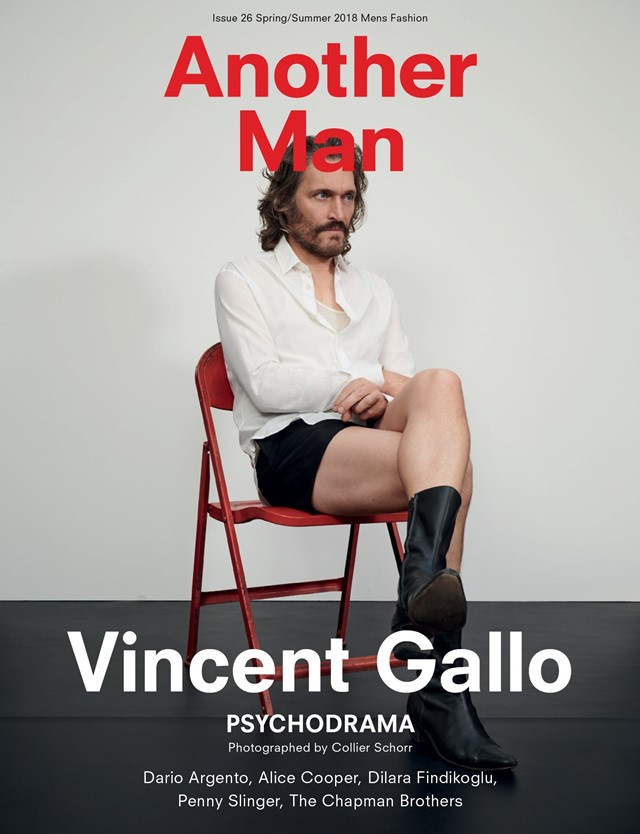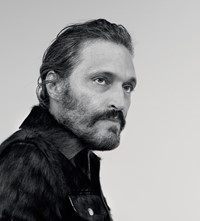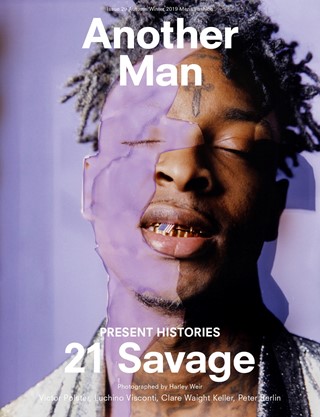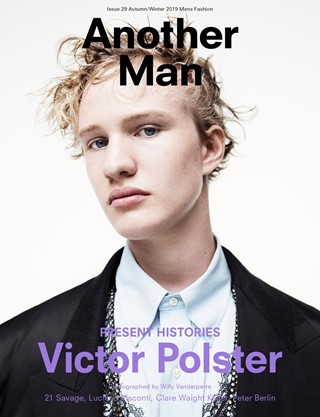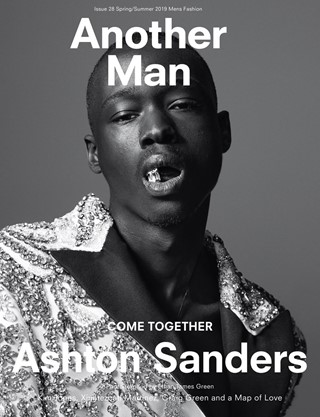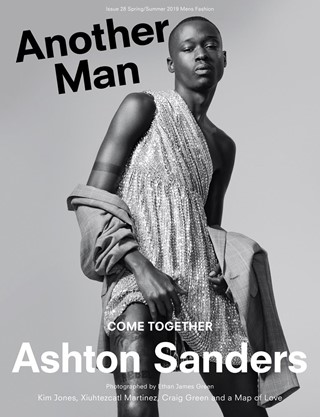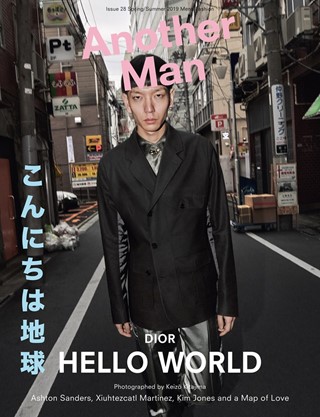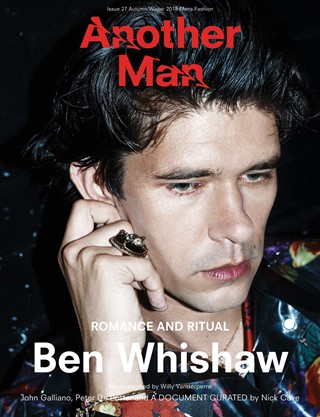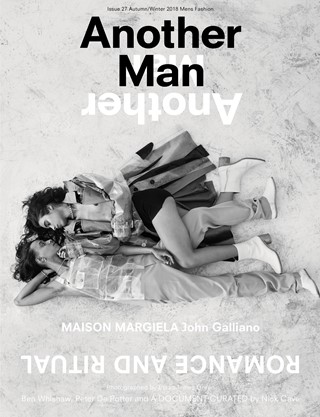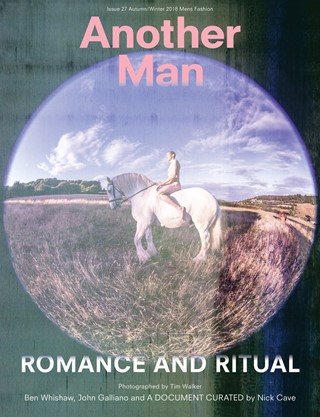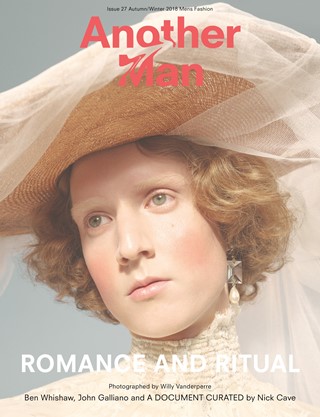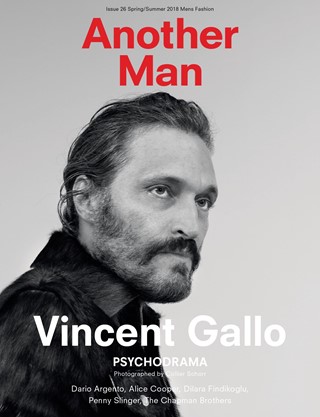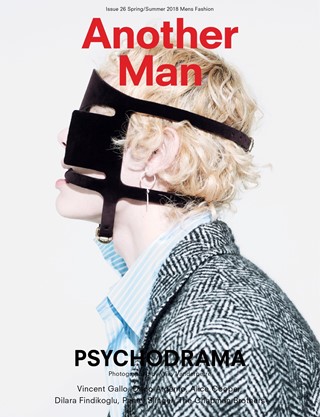Vincent Gallo
WHAT YOU ARE ABOUT TO READ IS AN OPEN LETTER FROM Vincent Gallo. THESE ARE HIS PERSONAL THOUGHTS – UNFILTERED AND UNEDITED – ON EVERYTHING FROM NARCISSISM AND FEMINISM TO WEINSTEIN AND TRUMP, AND WHY HE NEVER WANTS YOU TO SEE HIS WORK.
Vincent Gallo Sings by Vincent Gallo.
My name is Vincent Gallo. If you by chance know who I am, I hope that you don’t feel any negativity towards me. I don’t like to be called Vince. Please call me Vincent, Gallo, Vinnie Gallo, or Mister. Those are your choices. And I was not born Vincent Vito Gallo Jr. but instead just Vincent Gallo with no middle name. I invented the middle name Vito and used it once or twice, but that’s not my name. Somebody please correct it on Wikipedia.
Since I’m here and writing this piece, it makes sense to me to go on the record and clarify some hearsay, lies, fantasies, and the delusions of others. To speak for myself and to offer insight without a journalist separating you from me and the truth.
Both my parents were hairdressers. My father could sing well, but never did so professionally. Instead, he spent his time gambling and retired from work when I was still a young boy. We had very little money and my father was stingy with what we had. He controlled the small amount of money my mother made as a hairdresser. I got my first full time job at 12 years old. Four hours before school, five hours after school, ten hours on Saturday and ten hours on Sunday. You see, the biggest fear of my father’s life was that any of his children would ever need anything from him. So I made sure to take care of myself in every way and from very early on. My mother, who is a very kind person, is also a martyr. She worked very hard all day and night in a crippling rhythm. She is extremely neat and fanatically clean. They say I look like her. I’m one of those people who looked completely different as a young boy than I did as a teenager or do as an adult. The transitions were very dramatic and happened fast. I was twelve years old when it all went wrong. From straight blond hair to curly, greasy brown hair. From a beautiful all-American baby face to whatever my face is now. Sort of Dracula meets an insect. I know what I look like. It’s certainly not how I would have made myself look. Don’t blame me.
“I had very little interest in people as a kid and no real childhood friends. Unless we were stealing together”
As a boy, I had a lot of hobbies and interests. Mostly cars and motorcycles, hi-fi gear, guitars, records, fish and sports. I never, ever thought of making a movie, or doing paintings, or taking photographs. I did want to be rich, though. You see, during a very cold Buffalo winter, my kindergarten teacher read the class Hans Christian Andersen’s The Little Match Girl and it gave me bad dreams about being poor. After that, most of my thoughts were about survival, and I’ve always had a lot of fear about supporting myself. I had very little interest in people as a kid and no real childhood friends. Unless we were stealing together. I am only one year younger than my brother and we shared a room since birth, but I don’t remember spending any time together. Instead, I spent my free time in a section of my family’s basement where I serviced many fish tanks. To this day, I have never read a book of fiction. I did spend many hours then looking at and reading catalogs, brochures, pamphlets, technical journals, and parts lists that focused on the things I liked. I drove my bicycle all over Buffalo to visit guitar, record and hi-fi shops, and also to an aquarium shop on Hurtle Avenue. Aquatic Nature it was called. Unfortunately, most of my interests were esoteric to my classmates. I was a fanatic and a connoisseur and I made constant and unreasonable sacrifices for my hobbies and interests. The sacrifices included distance from my few friends for they would take up time away from my hobbies or time I needed to work to earn money.
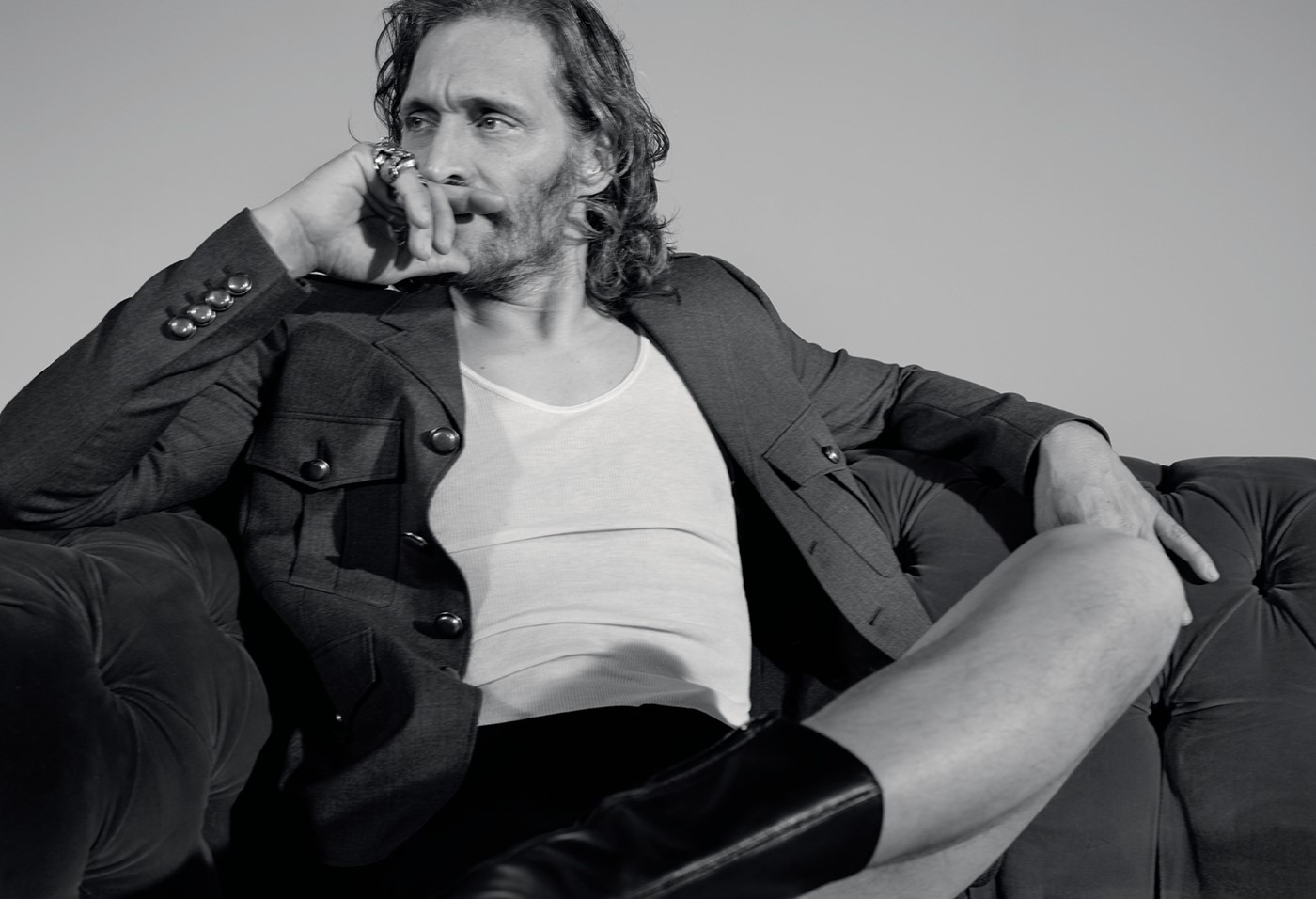
America has gained this reputation as the land of opportunity. It has done so by trying to destroy any and all hereditary obstacles to advancement. Instead, in America the idea is that individual initiative alone could create social mobility. A self-made man would owe his advancement to things like self discipline, loneliness, sobriety, the avoidance of debt, an excessive workload, relentless effort, disregard for his likability, self denial, and self abuse. A self-made man would live for the future and reject any self indulgences like a holiday or even a day off. Instead, under constant pressure, he would focus on grueling accumulation, one penny at a time. I’m a self-made man.
“The critics who say nothing happens in The Brown Bunny while my character drives across the country, those critics have the intellect of children. Children need to be constantly entertained and amused”
I remember my family’s only vacation. It was a trip from Buffalo into Canada to a lake. The journey would include a stay in a motel, which was described as having a large swimming pool. I had never been to a lake and had barely seen a swimming pool. My excitement was overwhelming. The trip was in the range of 250 miles. About a 5 hour drive. This meant that this vacation would include the longest journey of my life. There were three of us, the children. And my parents. I am the middle child. My parents owned a Buick. For several days before the trip, I dreamed about and fantasized about how the lake would be, how the water would feel, how deep it would be, if I would see fishes, and the swimming. I would swim and swim. We would be away from home so my mother could not cook homemade Italian food. Instead I would get to eat the things that I really liked. If I was lucky, McDonalds. I remember the morning when we left. It was still dark. My parents argued. My mother brought pillows and blankets and a Styrofoam cooler filled with snacks. A five hour trip is a long trip for a five year old. I spent a lot of the time in the car lying down in the section of the floor where your feet would go. I was small enough to curl up there, and tried my best to sleep. I remember the trip quite well. I was only interested in getting there. And the waiting was uncomfortable. I don’t remember the music on the radio, which normally I would listen to. I didn’t look out the window, which I would also normally do. Instead I sort of suspended myself, a kind of hibernation. I was simply focused on getting there. And I wanted the trip to go by as fast as possible. I was a child then. Only a five year old boy. The first time I traveled far as an adult, I was seventeen. I drove a car from New York City to Los Angeles. It was an old car and not in good shape. And I had very little money. I wanted to see California. It was so far from my childhood in Buffalo. Every minute of the trip was beautiful and I remember well the melodramas of the car failures and the repairs. And the music. Even familiar music sounded new or at least different on the road. I remember the morning when I came in from the desert and arrived in Los Angeles. It was exciting. LA was exciting. But in fact, it was the trip I remember best, the traveling, the looking around, the changes in weather and landscape, the very simple and subtle interactions with people along the way. I was an adult. That’s the difference between adults and children. The critics who say nothing happens in The Brown Bunny while my character drives across the country, those critics have the intellect of children. Children need to be constantly entertained and amused.
Some people wait for the blow job scene in The Brown Bunny the way I waited to get to the lake when I was a child.
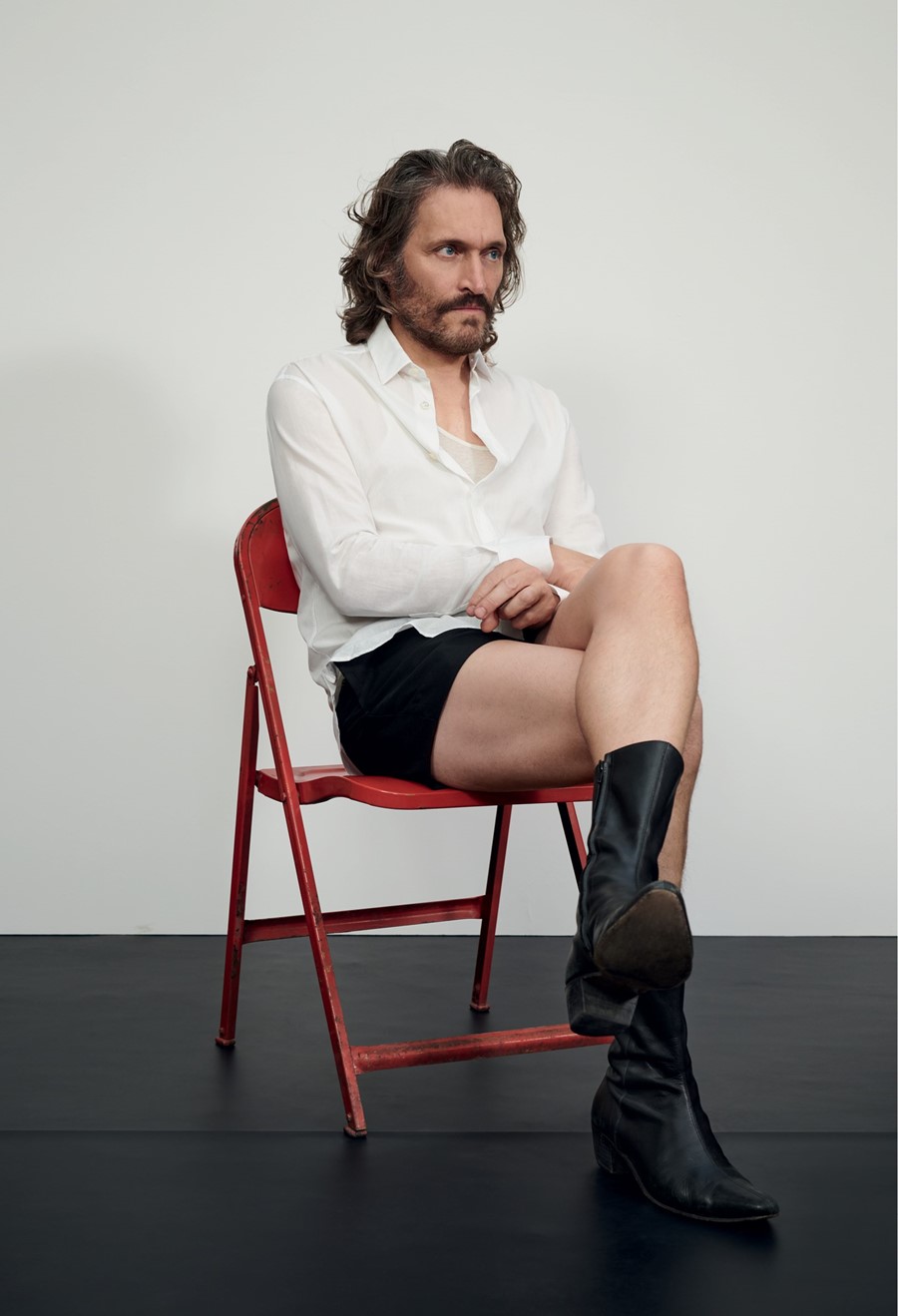
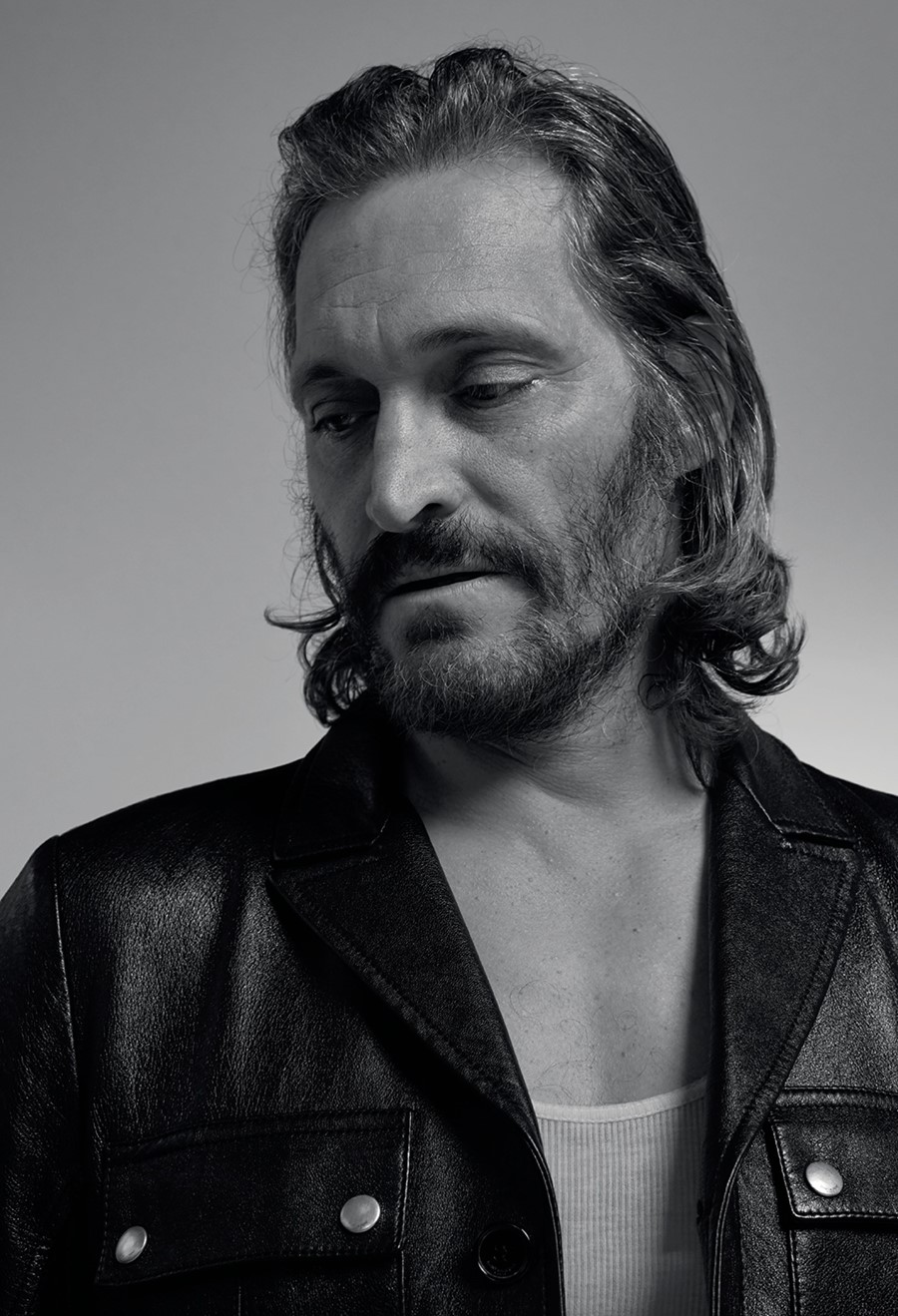
On May 19, 2003 in southern France, in the city of Cannes, during the running days of the most celebrated film festival in the world, the first press screening of my new film The Brown Bunny would be seen by several thousand people. Critics, journalists, and assorted merchants of the film industry would watch it together. There was not a single empty seat. The film began with opening credits over black background. In white letters they read, “Gray Daisy Films presents A Vincent Gallo Production. Written, directed, edited and produced by Vincent Gallo.” Over these credits, which lasted about 6 seconds, a loud heckling assortment of boos, hisses, laughing, sneers and shouts of “narcissist” drowned out the film’s opening soundtrack. Something was wrong.
Critics use the term narcissism so loosely that it retains little of its psychological content. They confuse cause and effect. When using the word narcissism as critique, they smell of ideology. In their loosest meaning of the word, they can also mean their own motivated perception of selfishness or self indulgence.
A narcissist admires and identifies himself as a winner out of his fear of ever being labeled a loser. The character I play in The Brown Bunny is in no way a winner, and by making a film which by its very nature could have only a limited release, I allowed them to label me a loser. By making The Brown Bunny there was in no way an opportunity to achieve the goals of a narcissist, the goal of being labeled a winner. In any case, it was the last thing on my mind. I was thinking about the film I wanted to make, not other people’s perceptions of why I would make it.
The screenplay of The Brown Bunny has certain goals. In the film version, I try to achieve the screenplay’s goals in a legitimate way. However, unlike the screenplay, the film is dependent on viewers to tolerate my appearance in the film. The tolerance is not towards whether I have played the part well or that I am compelling enough photographically. Instead, the viewer must tolerate something else. The viewer must also get over their suspicions about why the film was made.
“The Brown Bunny is not an attack on feminism or a sexist comment on the contemporary woman’s increased demand for sexual fulfillment. Instead it is simply a reminder of the corrupted nature of men when having contact with a less than sober woman.”
The Brown Bunny was an attempt at maintaining illusions and simultaneously presenting a heightened and enhanced version of reality, while hoping to result in new forms of insight into pathological behavior.
I was also interested in a character that even during sex could not let his mind go blank and fill up with the sex. Instead, while having sex he is rapidly thinking and his thoughts have a range of emotions far away from pleasure. This strange behavior juxtaposed against graphic real sex is disturbing.
The common purpose of pornography is to enhance sexual pleasure or sexual fantasy. It is meant to be free of things like guilt, insecurity, anger or responsibility. It can also be detached from the struggles of intimacy. I chose to use imagery common in pornography but placed these images in the emotional context which included intense guilt, anger, regret, anguish, and confusion. In this context, it is difficult for the images to enhance sexual pleasure or sexual fantasy. Instead, the graphic images work better to enhance the discomfort of intimacy.
The Brown Bunny is not an attack on feminism or a sexist comment on the contemporary woman’s increased demand for sexual fulfillment. Instead it is simply a reminder of the corrupted nature of men when having contact with a less than sober woman. The Daisy character is not to blame, yet it is still sad because underneath the feeling is that the tragedy could have been avoided. If it’s late at night just before the discotheque closes sometimes I see a very drunken woman left alone on the dance floor. She has no control. She’s out of her reasonable mind and unaware. She becomes hyper agreeable. She magnetizes the ugliest characteristics of the ugliest men left in the discotheque. Doom is in the air. Later on this can’t feel good.
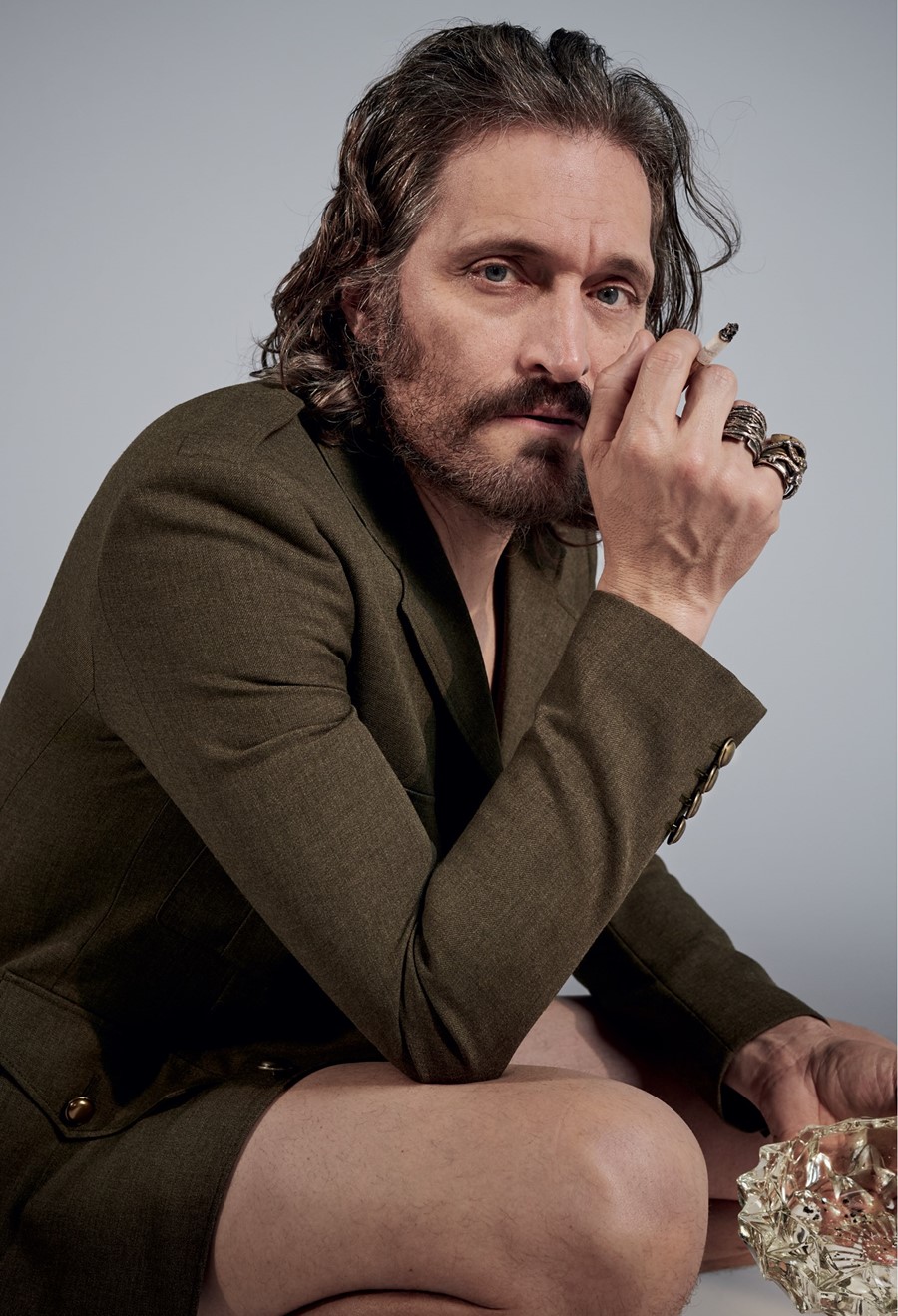
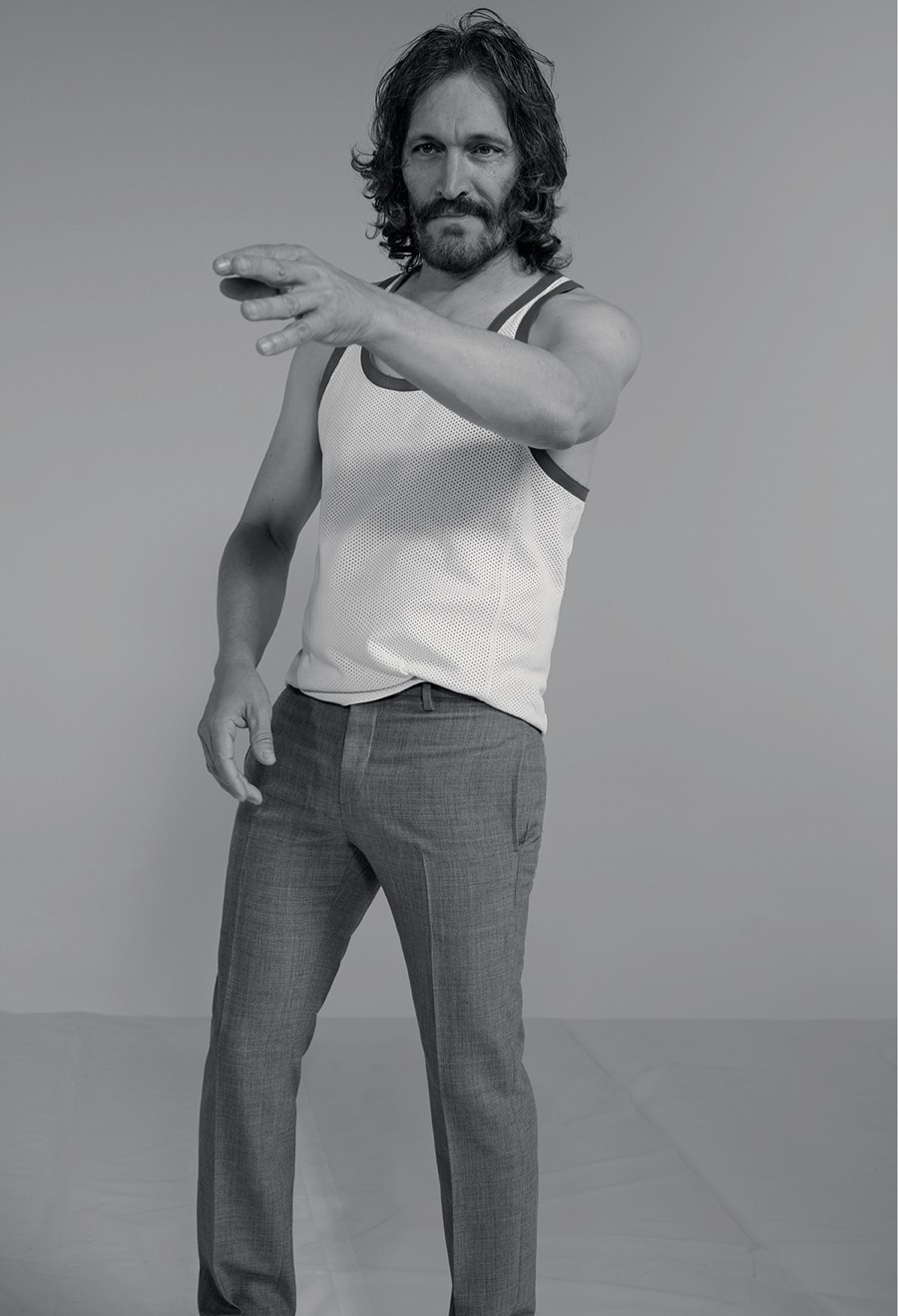
Listening to nasty remarks about me or my work doesn’t feel good. I don’t enjoy being unpopular, however in order to think freely, I must be willing to risk being unpopular. To think, I must risk being offensive. Anyway, most people are not listening but instead projecting.
I am aware of being responsible for the things I make. I am aware of it when I’m making them, especially when working with others. It often leads to conflicts. But most often those conflicts are over values and not the work.
Journalists who disagreed with my thinking, instead of listening would distort and simplify what I said and then restate it to make me appear cartoonish and offensive in hopes of marginalizing my work.
Almost everyone involved in cinema and arts believes group identity is most important. I don’t.
I hope my work is more interesting and more intelligent than I am.
Today’s liberal mainstreamers have tried hard to eliminate antagonism and instead have cultivated a weird friendliness toward cultural radicalism. Cultural radicalism has then become completely fashionable and it is now part of the status quo.
“Today’s liberal mainstreamers have tried hard to eliminate antagonism and instead have cultivated a weird friendliness toward cultural radicalism. Cultural radicalism has then become completely fashionable and it is now part of the status quo”
I am not a provocateur.
I believe in fairness but I do not believe in equality. I believe in fairness but I do not believe in equality. I reject the bastards who try to force equality and force outcome.
I don’t believe any activist has the right to speak for entire communities.
If I had the chance to control all the systems of the world, the bureaucracies, the city plans, the government programs, the circulation programs, architecture, and charity, after my careful studies, my impulse would be towards elimination to creating perfection – to remove things, take them away, or reduce them. I feel the same way about people. There’s a part of me that thinks and believes every single person is great, amazing, vital and likable. However, I’m torn between wanting to help each and every person in every possible way. Torn between that and wanting to erase 6 billion of them, or even more.
I believe art in its most radical form is done completely without purpose. Earlier in my work, I would create things in that way – without any purpose whatsoever. Later though, I would trade this work for ways to survive and ways to have access. I noticed then that there was some purpose driving me which felt dependent on the public. That all became uncomfortable. There is no purpose to my work now and the public has no part in it.
I am not, in my own mind, part of the tradition of the avant-garde. I do not, like the avant-garde artists, try to create poetic prophecy. I always think my understanding of what is beautiful is common and I am surprised when people find my work strange or weird or hard to sit through.
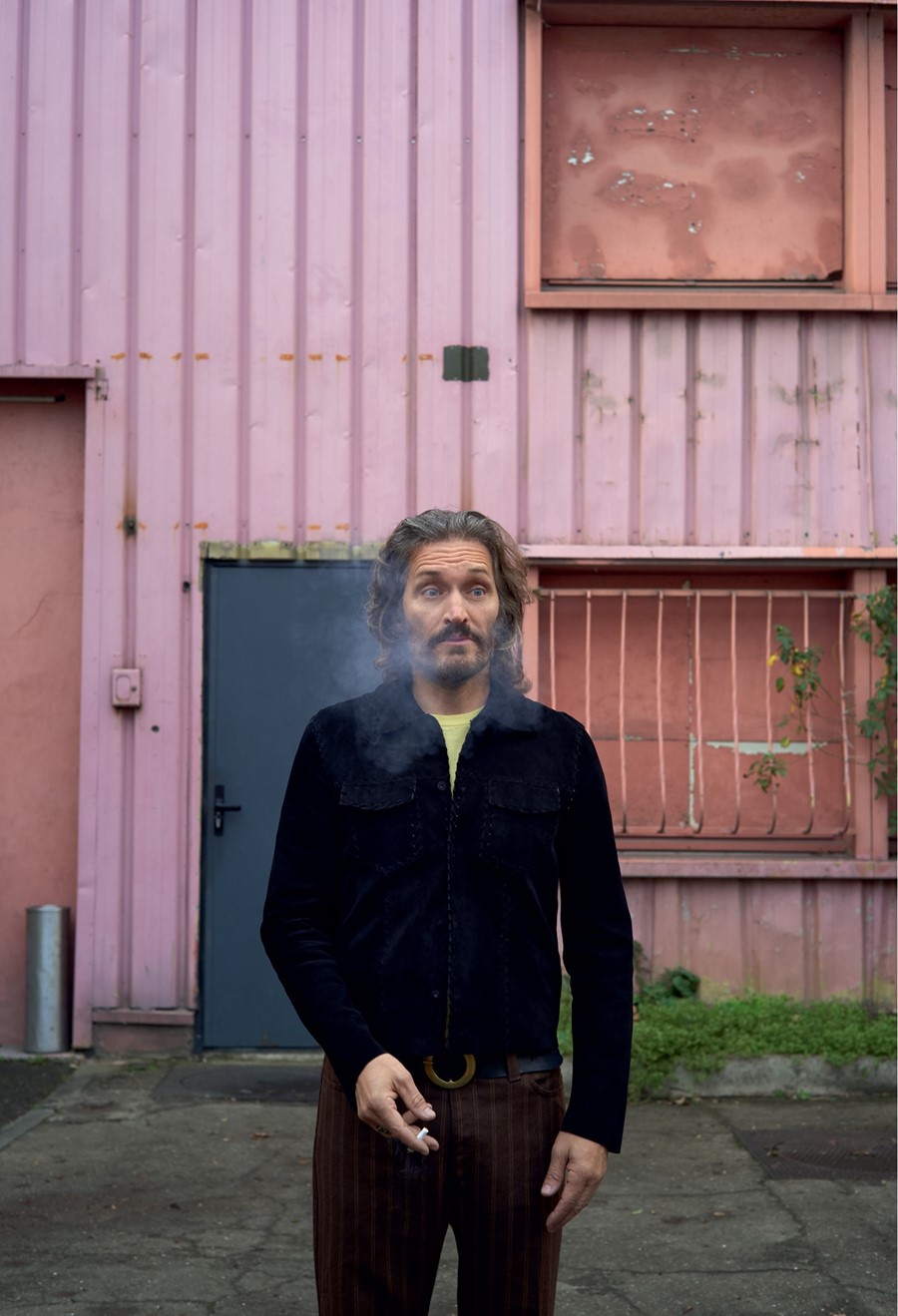
Roger Ebert claimed that the re-editing of The Brown Bunny after Cannes allowed him a difference of opinion so vast that he first called it the worst film in history and eventually gave it a thumbs up. This is both far fetched and an outright lie. The truth is, unlike the many claims that the unfinished film that showed at Cannes was 24 minutes shorter than the finished film, it was only 8 minutes shorter. The running time I filled out on the Cannes submission form was arbitrary. The running time I chose was just a number I liked. I had no idea where in the process I would actually be when I needed to stop cutting to meet the screening deadline. So whatever running time was printed in the program, I promise you, was not the actual running time. And the cuts I made to finish the film after Cannes were not many. I shortened the opening race scene once I was able to do so digitally. After rewatching the last 4 minutes of the film over and over again, somewhere within those 4 minutes, I froze the picture and just ended the film there, cutting out everything after that point, which was about 3 minutes. Originally in the salt flats scene, the motorcycle returned from the white. I removed the return portion of that shot, which seemed too literal. And I cut a scene of me putting on a sweater. That’s pretty much it. Plus the usual frame here, frame there, final tweaks. If you didn’t like the unfinished film at Cannes, you didn’t like the finished film, and vice versa. Roger Ebert made up his story and his premise because after calling my film literally the worst film ever made, he eventually realized it was not in his best interest to be stuck with that mantra. Stuck with a brutal, dismissive review of a film that other, more serious critics eventually felt differently about. He also took attention away from what he actually did at the press screening. It is outrageous that a single critic disrupted a press screening for a film chosen in main competition at such a high profile festival and even more outrageous that Ebert was ever allowed into another screening at Cannes. His ranting, moaning and eventual loud singing happened within the first 20 minutes, completely disrupting and manipulating the press screening of my film. Afterwards, at the first public screening, booing, laughing and hissing started during the open credits, even before the first scene of the film. The public, who had heard and read rumors about the Ebert incident and about me personally, heckled from frame one and never stopped. To make things weirder, I got a record-setting standing ovation from the supporters of the film who were trying to show up the distractors who had been disrupting the film. It was not the cut nor the film itself that drew blood. It was something suspicious about me. Something offensive to certain ideologues.
“A year later, Sean Penn, who was at Cannes in 2003, said to me that if the film’s credits read, ‘Written and Directed by Chloe Sevigny,’ it would have likely won the Palm D’Or”
A year later, Sean Penn, who was at Cannes in 2003, said to me that if the film’s credits read, “Written and Directed by Chloe Sevigny,” it would have likely won the Palm D’Or. Meaning those judgmental judges would have felt the film was a feminist triumph and Chloe so brave.
Chloe Sevigny was never my girlfriend and for several years before filming The Brown Bunny we were less than friends and had no contact whatsoever. After filming The Brown Bunny I did not see her or talk to her until Cannes 2003 and then not again until the New York premiere in 2004. I’ve only seen her a couple of times since 2004. Recently I saw her at the Hotel Crillon in Paris. We sat together for a snack at a food bar there. I still feel something strong for her. Chloe is very special, beautiful. I was lucky she was open to me and that project because I could imagine only us in the film together and I likely would not have made the film with someone else.
Contrary to what was written at the time and printed in Screen International and then reprinted many times after, I did not apologize for making The Brown Bunny. I am not sorry that I made the film. “Hey, if people don’t like the film, I’m sorry for them,” is a far cry from, “I am sorry that I made the film.” or “I apologize for it”. Fuck Screen International and their lies.
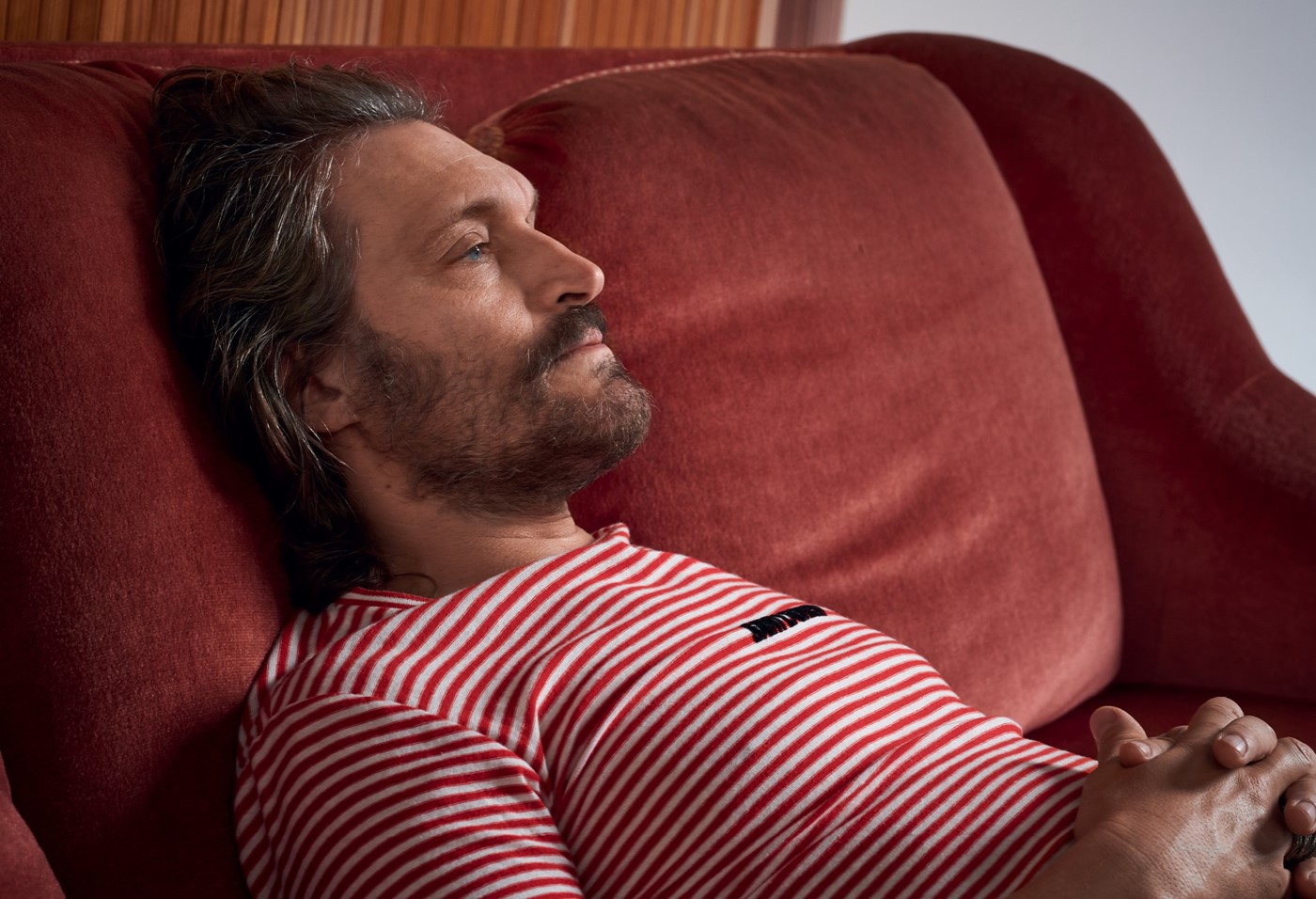
Thankfully, these days Donald Trump has at least created some doubts about everything related to the press. In 2003 I was the Donald Trump of Cannes and anything I said or did was twisted and filtered through the righteous tabloid barbarians posing as journalists and critics.
Today, young people in the big cities in New York and California are all part of a similar social ideological consensus and all think alike. They are highly motivated in their ideological reasoning and are intolerant.
By the way, tolerance is tolerance is tolerance. Period, you assholes. Today’s intolerant, young, liberal California/New Yorkers are only comfortable within their own shared consensus. Friends must think alike and believe the same things now. They must vote the same and defend the same ideology like zombies. Anyone who disagrees can only be evil, stupid, and wrong.
Friends Jasper Johns and Robert Rauschenberg were quite different from one another in many ways. However, through competing and collaborating and sharing and respecting one another’s vocabulary and differences, they were able to reach their highest level. They were two men with an IQ of 160 each and together they equaled 320. In today’s world of overwhelming consensus one plus one equals one.
Buffalo 66.
“I hold grudges sometimes and I had that a little bit with Christina for reasons that I may have exaggerated. I insulted her jokingly one day to a friend and a sneaky gossip writer overheard me. Christina and I have not spoken since. There are a lot of people I don’t like and have no problem calling out. Christina is not one of them”
I had a strong, special reaction to Christina Ricci the first moment I saw her on film. That reaction pushed me to want to make my own film so I could work with her. I still smile when I see a picture of her and when she insults me in the press it reminds me that we are connected in some way, and for that I am grateful. Christina Ricci was my friend during the filming of Buffalo 66 and working with her made sense and felt natural. I don’t think she likes the finished film much. During the film’s release she didn’t do much to support it. Instead, she pushed another film of hers called Opposite of Sex which was released around the same time. Without Christina’s strong support, things were much harder regarding the release of Buffalo 66 and it forced me to generate interest in the film on my own. I hold grudges sometimes and I had that a little bit with Christina for reasons that I may have exaggerated. I insulted her jokingly one day to a friend and a sneaky gossip writer overheard me. Christina and I have not spoken since. There are a lot of people I don’t like and have no problem calling out. Christina is not one of them.
I made two films titled Promises Written in Water and The Agent. I have not released either film. For my close friend Sage Stallone, who appears in both, I agreed to show the films twice at the 2010 Venice Film Festival followed by a screening of each at the Toronto Film Festival. Then Sage didn’t show up to Venice or Toronto and so neither of us attended any of those screenings. The world could spin for a trillion more years but there will never be another like Sage Stallone. He was the most original, funny, nutty, brilliant person I have ever met and I miss him so much.
Making a film with no plan to show it was more transforming than otherwise. The possibilities of what a film could be, could never be realized with the public so in mind. The public has no productive purpose for me now. If no one ever sees or hears anything I make again, it doesn’t change what I’ve made but instead changes the possibilities of what I could make later on. A relationship with the public creates expectations that make it difficult for that public to look at any new work naturally and without bias. Promises Written in Water and The Agent are highly conceptual, stripped down films that may not entertain many. But the exercise of making them felt far beyond where I went with Buffalo 66 and even The Brown Bunny. The rumors of how both were made and why I have not released them are all 100% complete mistruths and fake quotes. 100% complete mistruths and fake quotes.
A long time ago, Richard Avedon included me in a series of ads for a Calvin Klein fragrance. Also featured was Kate Moss. I remember meeting her then and thinking how wild and incredible she was. And so beautiful. She was dating my friend Johnny and I thought how lucky he was. This last fall we both appeared in the new Saint Laurent ads and so we sat together at the show in Paris. It was the first time I’d seen her since Calvin Klein in 1995. Later that night I watched her a bit at a party and talked to her briefly. In a room filled with people, Kate stands out. There is really something amazing about Kate that I could go on and on about.
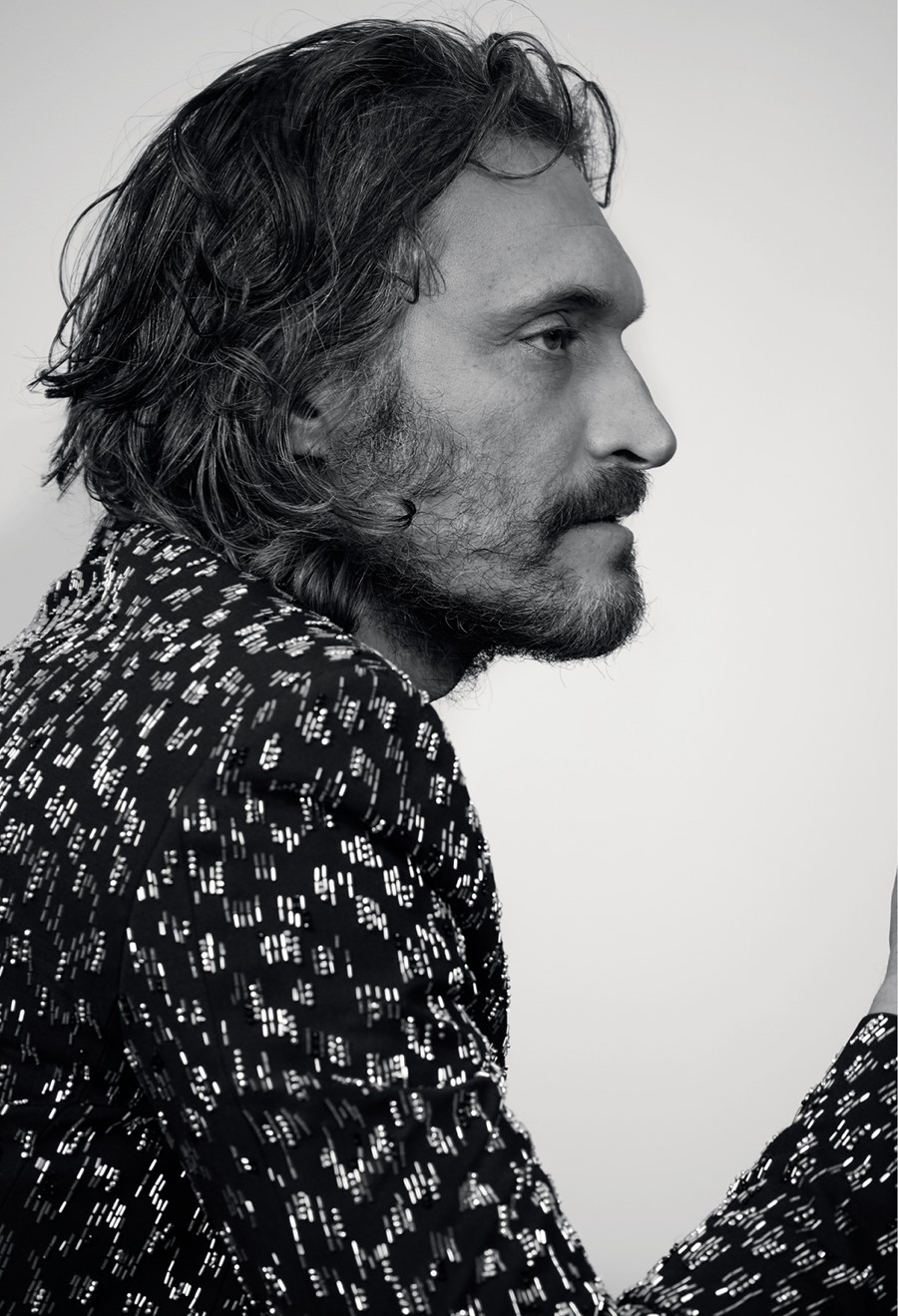
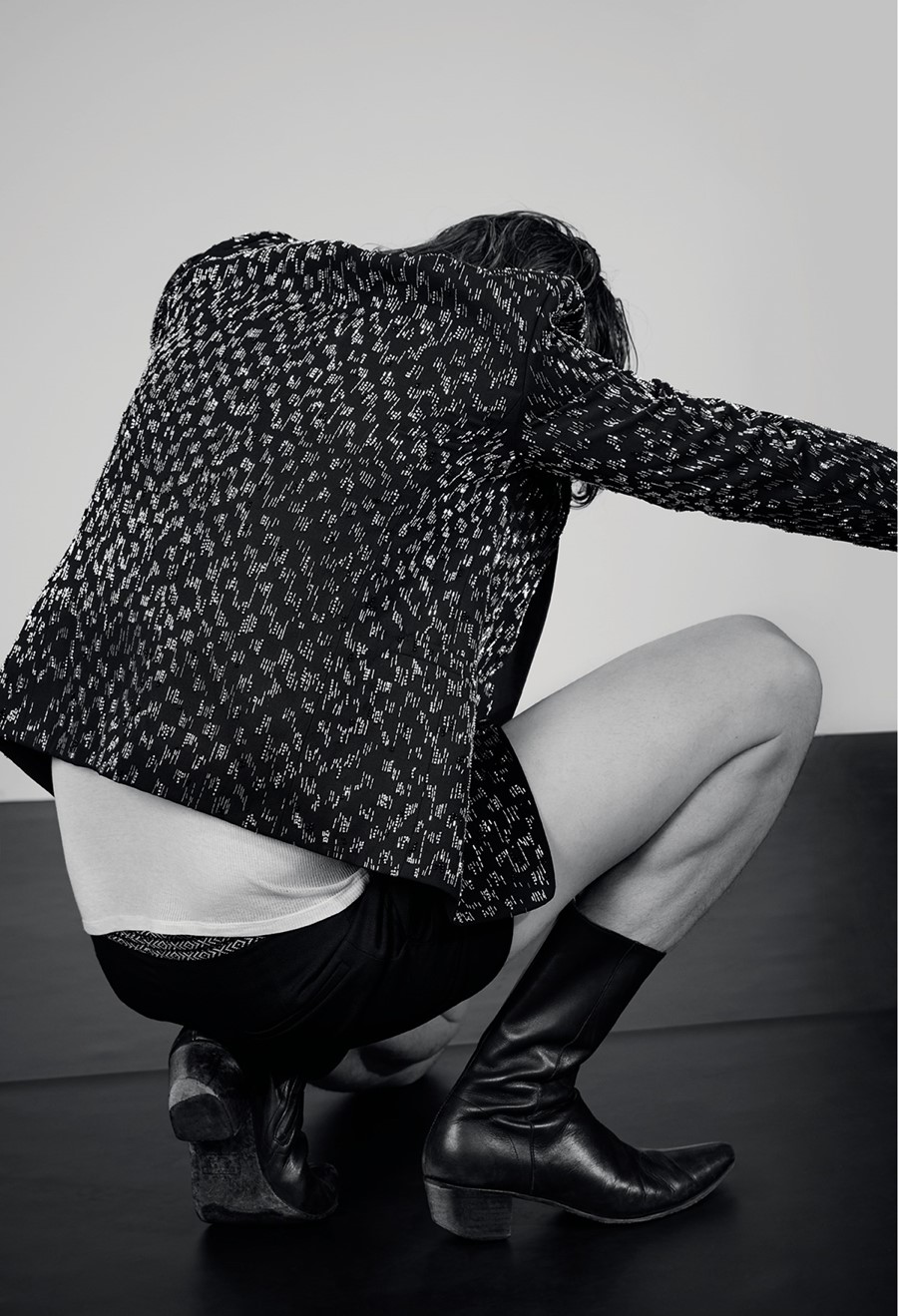
I am not really in Goodfellas. I’m a glorified extra in that film. Anytime a writer writing about me includes Goodfellas in my list of credits I know they are lazy, disinterested, and don’t like films.
I was close to Asia Argento, but we were never engaged. I do remember though threatening Harvey Weinstein for what Asia claimed he did to her. That created a real enemy in Harvey who certainly went out of his way to marginalize my work and my opportunities as much as he could. By calling him out then I was his enemy and no one from the press would repeat any of my claims against him. My clash with him was costly to me in a real way. Naturally, it felt bad when, instead of speaking out along with me, Asia then denied and changed her story and went on to work with him, carry on a personal relationship with him, and repeat additional things I said about him to further enrage him against me. Her appearance in recent press regarding Harvey is very uncomfortable for me.
What if, instead of taking a $100,000 payoff to remain silent, Rose McGowan filed charges against Harvey Weinstein at the time of her incident? How many future incidents would she have prevented?
Harvey Weinstein is a brutal pig, yes, but I really wish it wasn’t those two particular girls getting glorified for now saying so.
The feminist tribe chooses odd heroes. Hillary Clinton. Feminism should be a fight for fairness. Instead the fight is only to control outcome. And when feminists don’t like outcome, they assume something’s unfair. Like fools. Most of the left is the same way.
I never dated Corey Kennedy, never kissed her, never touched her. I didn’t even like her much and she smelled funny. I barely knew her. She and her boyfriend approached me once and asked me to take a picture with her. He was a blogger and they were both opportunists.
Chris Habib is an asshole.
River Phoenix is by far the best and most beautiful of his generation.
“Harvey Weinstein is a brutal pig, yes, but I really wish it wasn’t those two particular girls getting glorified for now saying so”
Laird Hamilton is the greatest of them all. And by far
I still wonder about this girl Ada Marie Monaco that I met at Villa Roma Resort around 1974. I think her father’s name was Santo. I think they were from Staten Island.
Hey, Mark Zuckerberg, Sheryl Sandberg and David Wehner, please lie down and die.
Viv Albertine, what really happened was that when we finally met I wasn’t attracted to you and was only being polite by not making that clear. Your story of us is just a story you made up in your head. And fuck you for the betrayal of my privacy for your own self-glorification.
Quentin Tarantino, I’m sorry for goofing on you all these years. You’re one of a kind. You’re great. Peace.
I like Donald Trump a lot and am extremely proud he is the American President. And I’m sorry if that offends you.
The reasons why I do things are difficult for me to understand and difficult for me to explain.
This has been uncomfortable and embarrassing and I do not feel anything productive will come of it.
The S/S18 ‘Psychodrama’ issue of Another Man is out now. Buy a copy here.
HAIR Holli Smith at Art Partner MAKE UP Hiromi Ueda at Julian Watson Agency using Dermalogica SET DESIGN Alex Bock at Streeters PHOTOGRAPHIC ASSISTANTS PJ Spaniol, Max Dworkin, Paul Jedwab DIGITAL TECHNICIAN Stefano Poli STYLING ASSISTANT James Campbell MAKE UP ASSISTANT Miki Matsunaga RETOUCHING Two Three Two PRODUCTION Sylvia Farago LTD
